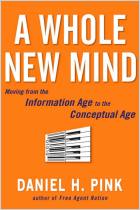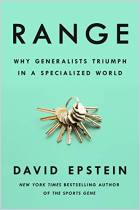加入 getAbstract 阅读摘要

加入 getAbstract 阅读摘要
Kenneth Mikkelsen and Richard Martin
The Neo-Generalist
Where You Go Is Who You Are
LID Business Media, 2016
看看什么内容?
An increasingly complex world requires a “neo-generalist” breadth of knowledge.
Recommendation
Business adviser Kenneth Mikkelsen and writer Richard Martin post a thought-provoking central theme: Appreciate the “generalists” on your staff and understand what they can do for your organization. Today’s corporate leaders tend to esteem “specialists” and banish generalists. The authors suggest taking a different path since “neo-generalists” can act as intermediaries among specialties, helping to cross-pollinate ideas and to keep the experts aware of the big picture. This lively, passionate book traces how generalism went out of style. Then, the authors profile several dozen modern, generalist Renaissance men and women in the arts, entrepreneurship, international development and education. getAbstract recommends this treatise to executives who are seeking to spark new ideas and nurture synergistic energy within and among their teams.
Summary
About the Authors
Kenneth Mikkelsen is a writer, business adviser and Peter Drucker Society associate; he co-founded the St. Martin’s School for underprivileged children in Cameroon. Freelance editor Richard Martin wrote the film noir study Means Streets and Raging Bulls.





















Comment on this summary